This premium content is exclusive to edie Members.
To find out more about edie Membership, please click below.
If you are an existing member, login here
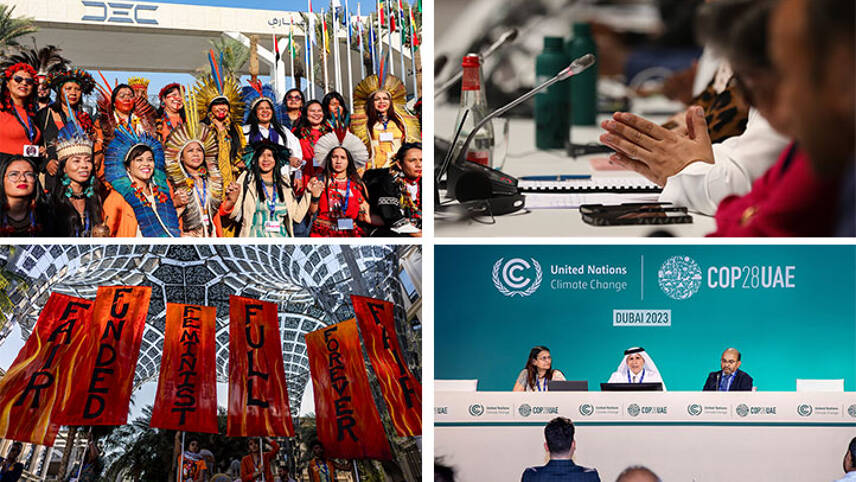
Read on for today's COP28 news in brief. Images: UNFCCC, credit for each below
More than 120 nations signed on to a new ‘Global Decarbonisation Accelerator’ early on in this COP, committing to treble global installed renewable energy generation capacity by 2030 and to double the annual rate of energy efficiency improvements within the same timescale.
Today, all manner of side events have been held to unpick some of the key barriers to delivering these aims, and to highlight the opportunities that delivery could have in terms of social sustainability, from the creation of good new jobs to reduced exposure to air pollution.
Attention has also been firmly on the happenings inside the official negotiating rooms, where first drafts of key texts have been agreed, with dozens of options still on the table.
And, out in the open in the Blue and Green Zones at Expo City, delegates have continued to stage peaceful demonstrations. Perhaps the biggest one yet called for a fossil fuel phase-out that is ‘fast, fair, funded and forever’. Certainly the most eye-catching was the slow procession of Indigenous women from Brazil in traditional garments.
To help you recap all the action, this article rounds up seven of the headline happenings from 5 December at COP28.
You can find all of our COP28 coverage here.
Draft Global Stocktake texts emerge
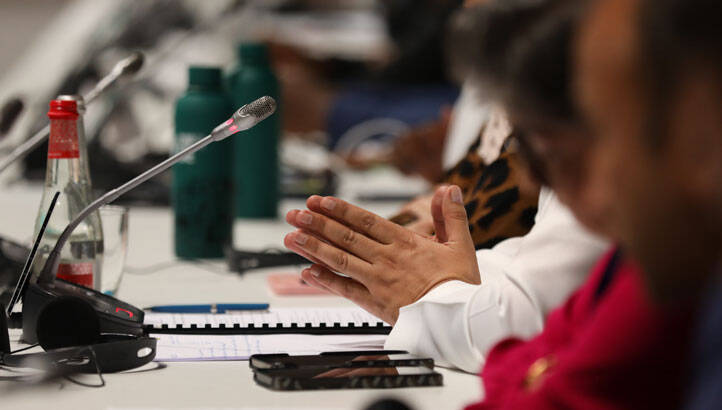
Image: UNFCCC Flickr / Kiara Worth
One of the biggest talking points at this COP is the Global Stocktake. COP28 will mark the first time a global assessment on national efforts to reach the Paris Agreement have been published during the summit. It will essentially chart the course of action moving forward, most likely acting as a wake up call for nations to accelerate action.
The draft text was published overnight. The 12-page document, “welcomes” that the Paris Agreement has “driven near-universal climate action by setting goals and sending signals to the world regarding the urgency of responding to the climate crisis”.
It also states that “the impacts of climate change will be much lower at the temperature increase of 1.5C compared with 2C”.
However, the draft text “notes with significant concern” emissions are not in line with modelled global mitigation pathways consistent with the temperature goal of the Paris Agreement. Recently, the UN warned that current national pledges are aligned with 2.5-2.9C of warming. It warns of a “rapidly narrowing window to raise ambition and implement existing commitments” in order to limit warming to 1.5C.
The document is currently light on mentions as to how fossil fuels should be phased-out and also lacks detail on key biodiversity mechanisms such as combatting deforestation and championing nature-based solutions.
It also warns that nations are not on track to achieve ambitions on mitigation, adaptation and means of implementation and support.
The official negotiating texts are also out in their initial format. Carbon Brief estimates that more than 90 possible combinations of decisions are possible. The good news is that an option including a fossil fuel phase-out is on the table. But there are also options to mention a phase-down, or to omit direct mentions of fossil fuels entirely. Saudi Arabia has emerged as an early and vocal blocker of a phase-out.
It’s still all to play for but, as Paul Polman told us earlier this week, those advocating for a fossil fuel phase-out this COP “still have their work cut out for them”.v
Fossil fuel industry accused of infiltrating Expo City
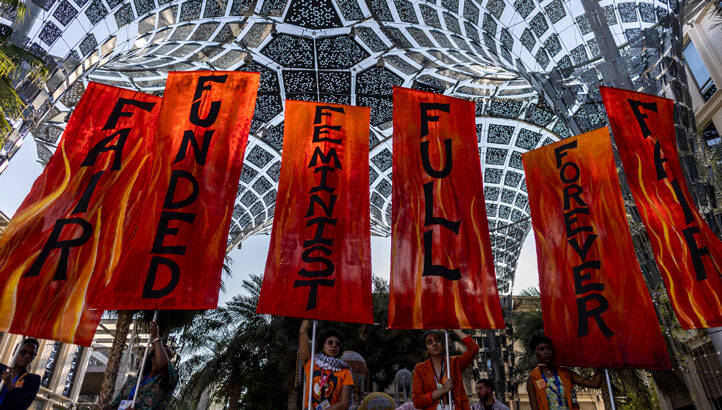
Image: UNFCCC Flickr/ Mahmoud Khaled
Each year, campaign group Kick Polluters Out (KPO) trawls through the list of registered COP28 attendees to determine how many are fossil fuel lobbyists. It applies this label to decision-makers at state-owned and private energy companies, plus delegations of petrostates with major expansion plans.
There are a record 100,000+ people registered for COP28. KPO estimates that around 2.5% of them fit its definition of a fossil fuel lobbyist. For context, this is five times the number of scientists on the ground and seven times the number of Indigenous representatives.
Also worth noting is that KPO has tracked a fourfold increase in fossil fuel lobbyists on the numbers present last year at COP27 in Egypt.
Fossil Fuel Non-Proliferation Treaty chair Tzeporah Berman said: “We wonder why we can’t get strong agreements that constrain fossil fuels… stop negotiating with [the industry] and start regulating it.”
Academics press to put climate tipping points on the COP agenda
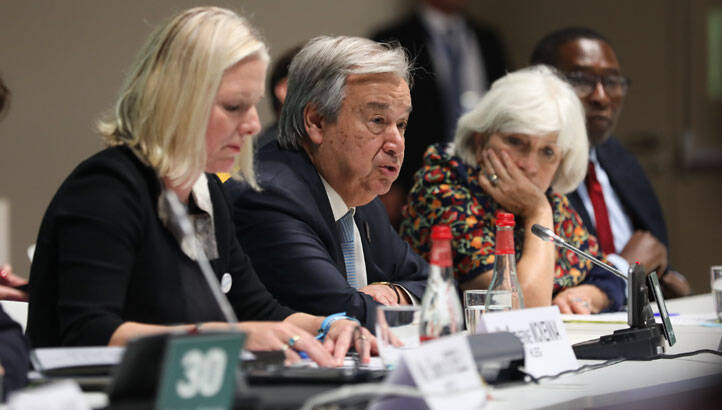
Image: UNFCCC Twitter/ Kiara Worth
A team based out of the University of Exeter has published what it claims is the most comprehensive review to date of environmental tipping points, both positive and potentially catastrophic.
In the main, the conclusion is that human action has pushed the world dangerously close to several of these tipping points. Some will almost certainly be activated in the coming years. The report warns that business-as-usual is no longer an option and an “emergency footing” is needed.
But this analysis also presents a string of positive tipping points which, if reached, would bring about exponential change relating to climate mitigation and adaptation, ecosystems and livelihoods. The focus is not only on what must be transitioned away from, but what must be worked towards.
The report sets out six key calls to action for policymakers and UN process organisers at this COP:
- Immediate action to phase out fossil fuels and to reduce greenhouse gases from agriculture
- Dramatically scaling loss and damage and adaptation finance in terms of total levels as well as distribution and accessibility
- Including tipping points in national climate plans submitted to the UN under the Paris Agreement
- Convening an urgent global summit on tipping points, led by the UN Secretary-General (pictured above)
- Coordinating coalitions of organisations to develop and implement policy efforts
- Deepening tipping points knowledge through enhanced science-policy engagement
Read edie’s full story on the Global Tipping Points report by clicking here.
Indigenous leaders take the spotlight
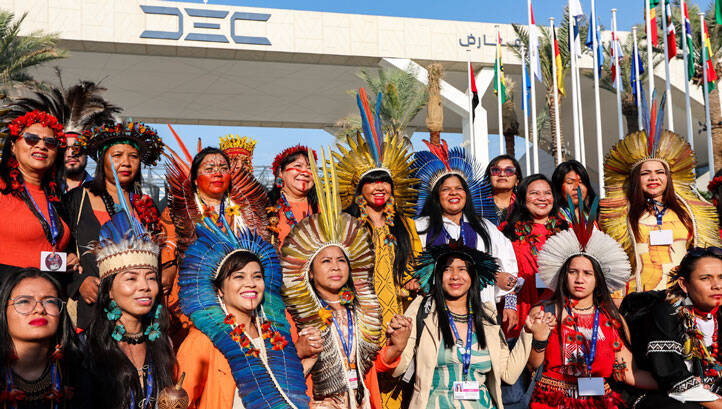
Image: UNFCCC Flickr / Mahmoud Khaled
The COP28 Presidency has chosen several themes for each day of this summit. Along with energy and the just transition, space in the thematic programme had been allocated to Indigenous People today.
Every COP, debates rage about accessibility for Indigenous leaders, with practicalities ranging from transport and accommodation costs and language barriers often not properly considered by organisers. There is also the matter of getting these important voices into country delegations and negotiating rooms, not only into side events and photo opportunities.
Indigenous women from Brazil held a march through the majority of Expo City today. And, in the delegation rooms in the Blue Zone was Sonia Guajajara of Brazil – the first Indigenous person to lead a country delegation at a COP. She heads up the Brazilian Ministry of Native People, which was established earlier this year.
Centre of Excellence unveiled to spur Article 6 of the Paris Agreement
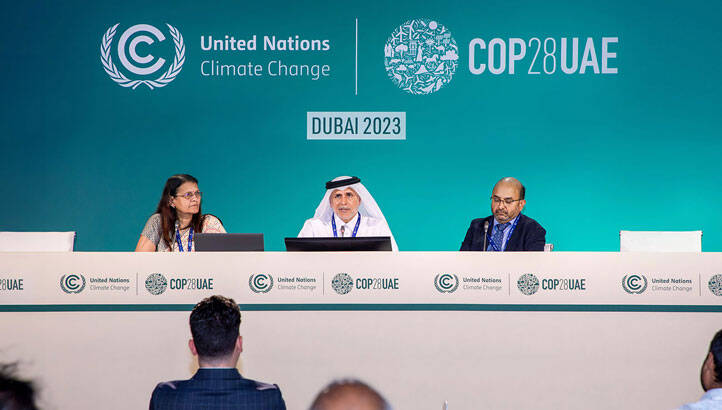
Image: Global Carbon Council
Also on Energy Day at COP28, the international carbon credit and sustainable development program, the Global Carbon Council, announced the launch of a new “Centre of Excellence” to speed up the implementation of Article 6 of the Paris Agreement – the part of the text relating to carbon markets.
The Centre of Excellence will be based out of Qatar and will explore how governments can be supported with climate finance and new policy solutions to boost the trading of Internationally Transferred Mitigation Outcomes (ITMOs) between the private sector and governments.
Article 6 covers both “compliance” markets, enabling nations to trade emissions credits garnered from reduction and removal activities with each other (under Article 6.2), and “hybrid” national-private markets, enabling countries to sell credits to businesses (under Article 6.4).
The new Centre will work with policymakers to provide an update on the regulatory frameworks and methodologies for accepting Carbon Capture & Storage (CCS) and Nature Based Solutions (NBS) projects into the program.
UAE joins Powering Past Coal Alliance
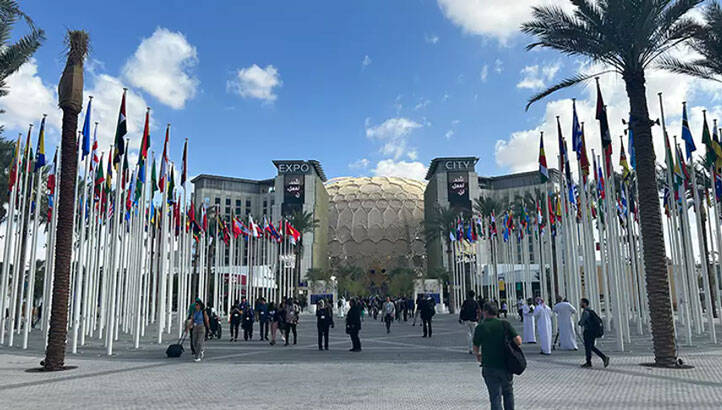
Image: Luke Nicholls, edie
Marking its position as COP28 Presidency holder, the United Arab Emirates (UAE) has joined a coalition of nations, governments and businesses that have committed to phase-out all use of unabated coal power.
The UAE and Malta today announced that they have joined the Powering Past Coal Alliance (PPCA), committing to transition from unabated coal power generation to clean energy.
It marks a key step for the COP Presidency, which is still facing accusations that it is using the climate summit to boost its oil and gas exports.
For all the size of its oil and gas economy, which makes up 40% of government revenue, the UAE does not have any coal reserves and operates only one coal-fired power station. Indeed, the UAE stopped using coal in power generation in 2022.
Malta is not a major coal player, with no domestic coal extraction. It does import some coal for heavy industry from markets including the EU. Malta phased out coal power in 1996.
Malta and the UAE bring the total number of new PPCA members announced at COP28 up to nine. Other members include the US, the Czech Republic, Cyprus, Dominican Republic, Iceland, Kosovo and Norway. The PPCA now covers 59 countries.
UN outlines how cooling sector emissions can be slashed
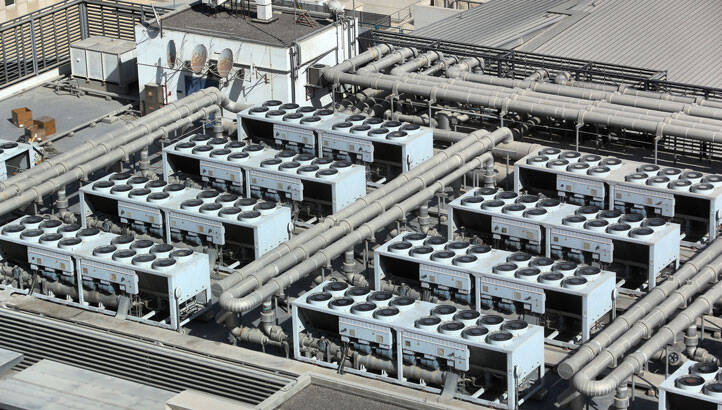
Stock image
The Global Cooling Watch report, ‘Keeping it Chill: How to meet cooling demands while cutting emissions’ was published today at COP28 by the UN Environment Programme-led Cool Coalition.
It found that passive cooling, higher-energy efficiency standards, and a faster phase-down of climate-warming refrigerants could cut sectoral emissions by 60%, which when combined with clean energy integration into the grid, could see overall sectoral emissions reduced by 96% by 2050.
More than one billion people across Africa and Asia currently lack access to cooling services, which in turn puts lives at risk due to heat stress. It can also reduce farmer income and hinder universal vaccine and medicine access.
On an environmental front, the cooling sector accounts for 20% of total global electricity consumption and is predicted to double by 2050. Based on current trajectories, emissions from cooling are predicted to account for more than 10% of global emissions by 2050.


Please login or Register to leave a comment.